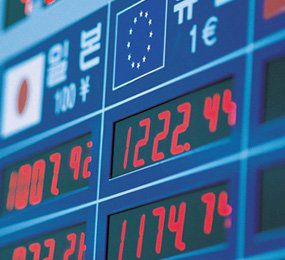The forex market is open 24 hours a day, five days a week, because the forex exchanges in North America, Europe, Asia, and Australia are open at staggered and often overlapping times.
Key Takeaways
- Forex can be traded using exchanges in different parts of the world from 5 p.m. EST on Sunday until 5 p.m. EST on Friday.
- The ability to trade forex over 24 hours is mostly due to different international time zones.
- Forex trading opens daily with Australia and Asia, then Europe, followed by North America.
- As one region’s markets close, another’s opens or has already opened and continues to trade in the forex market.
Foreign Exchange (Forex) Definition
Understanding 24 Hour Forex Trading
International currency markets are made up of commercial banks, companies, central banks, investment management firms, hedge funds, retail forex brokers, and investors around the world. Because this market operates in multiple time zones, it can be accessed anytime except for the weekend break.
At any point, at least one market is open, and there are a few hours of overlap between one region’s market closing and another opening. The international scope of currency trading means there are always traders making and meeting demands for a particular currency.
While the forex market is available 24 hours per day, currencies in several emerging markets are not traded the entire time the markets are open. The seven most traded currencies in the world are the U.S. dollar, the Euro, the Japanese yen, the British pound, the Australian dollar, the Canadian Dollar, and the Swiss franc, all of which are traded continuously during trading sessions.
Despite the highly decentralized nature of the forex market, it remains an efficient transfer and far-reaching mechanism for those who wish to speculate from anywhere on the globe.
Speculators typically trade in pairs crossing between these seven currencies from any country in the world, though they favor times with heavier volumes. When trading volumes are heaviest, forex brokers will provide tighter spreads (bid and ask prices closer to each other), which reduces transaction costs for traders. Likewise, institutional traders also favor times with higher trading volume, though they may accept wider spreads for the opportunity to trade as early as possible in reaction to new information they have.
Why Forex Trading Is Important
Currency is needed around the world for international trade by central banks and global businesses. Central banks have particularly relied on foreign exchange markets since 1971, when fixed-currency markets ceased to exist because the gold standard was dropped. Since then, most international currencies have been “floated” rather than tied to the value of gold.
The ability of the forex market to trade over a 24-hour period is mostly due to different international time zones and the fact that trades are conducted over a network of computers rather than any one physical exchange that closes at a particular time. For instance, when you hear that the U.S. dollar closed at a certain rate, it simply means it was the rate at market close in New York. That is because, unlike securities, currency continues to be traded long after New York’s close.
Securities such as domestic stocks, bonds, and commodities are not as relevant or in need on the international stage and, thus, are not required to trade beyond the standard business day in the issuer’s home country.
7.5 trillion
The amount that is traded on the forex market each day.
Forex Market Hours Explained
The forex market can be split into four main regions: Australia, Asia, Europe, and North America, with several major financial centers within each of these main areas. Australia and Asia are composed of Tokyo and Sydney. Europe is composed of major financial centers such as London, Paris, Frankfurt, and Zurich. The North American exchange is in New York and represents traders from Canada, South America, and Mexico. Banks, institutions, and dealers all conduct forex trading for themselves and their clients in each of these markets.
Forex trading hours are based on when trading is open in each participating country. While the timezones overlap, the generally accepted trading times for each region are as follows:
- New York: 8 a.m. to 5 p.m. EST (1 p.m. to 10 p.m. UTC)
- Tokyo: 7 p.m. to 4 a.m. EST (12 a.m. to 9 a.m. UTC)
- Sydney: 5 p.m. to 2 a.m. EST (10 p.m. to 7 a.m. UTC)
- Europe: 3 a.m. to 12 p.m. EST (8 a.m. to 5 p.m. UTC)
The period when the European and North American trading sessions overlap (London afternoon and New York morning) is the busiest and accounts for most trading volume.
What Time Does the US Forex Market Start?
The U.S. forex market opens at 8 a.m., Monday through Friday.
What Time of Day Should I Trade Forex?
The best time for most traders is when the London and New York exchanges overlap. However, you can trade at whatever times work best for you.
When Should You Not Trade Forex?
Forex traders generally avoid bank holidays, days when news impacts currency values, central bank news release days, or other illiquid days.
The Bottom Line
Currency is necessary for central banks, international trade, and global businesses. While the market may or may not have been intentionally designed to have these hours, a 24-hour market satisfies the need for transactions across various time zones. In sum, it’s safe to assume that there is no point during the trading week that a participant in the forex market will not be able to make a currency trade.















